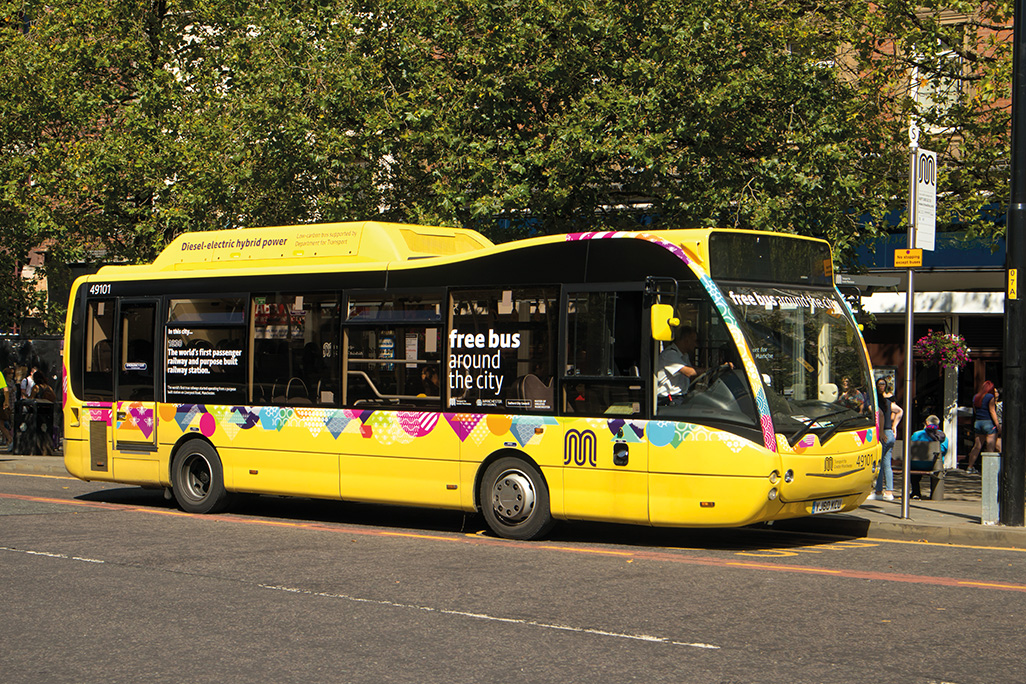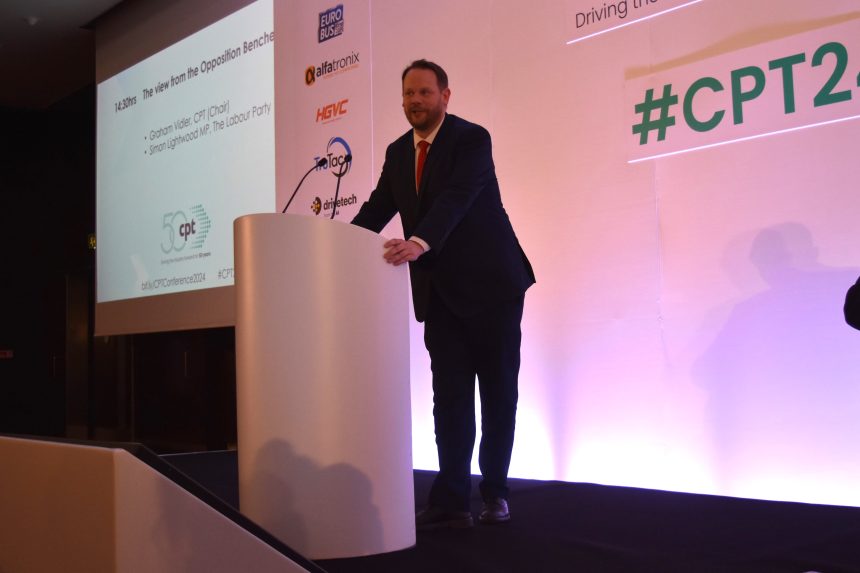I wasn’t able to attend the Confederation of Passenger Transport’s Conference in January, but I’ve now spoken to a few people who were there and, from a Westminster perspective, there are a couple of interesting things on which to comment.
First, how disappointing it was that the Buses Minister, Guy Opperman, couldn’t attend and only saw fit to address the conference via a pre-recorded video. Don’t get me wrong — ministers are busy people, but for the buses minister not to turn up in person at the annual conference for the industry he is responsible for, especially when the date of the event is known months in advance is, well, disappointing.
Still, at least the shadow Buses Minister, Simon Lightwood, attended in person. Given the expectation that Labour will form the next government in a few months’ time, perhaps the industry was more interested to hear what he had to say anyway and maybe Mr Opperman’s decision not to attend in person was a wise call after all!
Franchise concerns
There were, however, a couple of things that Mr Lightwood said that left me scratching my head somewhat. He was asked how a Labour government would expect cash-strapped local authorities to be able to afford franchising or how they would even have the expertise to design a franchise.
A very good question. I’m told his response was that the Department for Transport’s (DfT) buses team could play an important role by providing more centralised support for those areas that don’t have the capacity or resources. I wonder what DfT officials sitting in the audience made of that!
I think there are two major problems with this. First, it seems to me that the idea of DfT officials based in Whitehall working closely with local authorities to design a bus franchise is totally at odds with Sir Keir Starmer’s repeated statements that a Labour government would deliver a major devolution of power to local regions and local authorities under a “giving back control” agenda. Not only this, but I also can’t see how Whitehall officials can possibly have the necessary local knowledge to be able to help a local authority design a bus franchise.
Mr Starmer may find that his eventual parliamentary majority may not be the landslide that that a simple analysis of the national opinion polls suggest
Secondly, Mr Lightwood said that a Labour government would want to see franchising open to “every community”. I think he will find that not “every community” will want franchising but, that aside, if Labour’s aspiration is to be even half taken up across the country, that will require a pretty significant expansion of DfT’s bus division. I’m not sure Labour has thought this through very carefully.
And all of this before Labour has set out how it would fund a massive expansion of franchising. It is not a cost-free option, as I’ve said before and, unless and until Labour explains how the funding will be provided, I remain to be convinced that we will see franchising in many areas at all, and perhaps just limited to a couple more combined authorities in addition to Greater Manchester.
No quick fixes
In recent times, shadow Transport Secretary, Louise Haigh, has been talking up Labour’s plans to “fix” the UK’s “broken” bus and rail systems. In the absence of extra cash, Labour may find that this “fix” is harder to deliver than their rhetoric implies. In any event, transport rarely, if ever, features in a general election campaign and normally only secures two or three lines in party manifestos. The forthcoming general election won’t be any different.
Further, with both Rishi Sunak’s and Mr Starmer’s own personal poll ratings being anaemic, to say the least, this election will be determined by just two factors: is the electorate simply fed up with the Conservatives and ready for a change, and which party can be most trusted with the economy?
Mr Sunak has now given the green light to the Labour Party to formally engage with senior civil servants to discuss their policy agendas should it win the general election. Ms Haigh might soon be in for a rude awakening as to just how difficult it will be to deliver her “fix”, especially with Labour’s shadow Chancellor insisting she will “not waiver from iron-clad fiscal rules”.
Election outlook
Meanwhile, as Westminster Watcher, I hope you will indulge me if I make a few observations on the current political scene. There is some evidence now emerging that things may not be as straightforward for Labour as the national opinion polls suggest.

First, a recent opinion poll hinted that, if Chancellor Jeremy Hunt made meaningful tax cuts in his Budget on 6 March, about 30% of those who currently expect to vote for Labour would switch their vote to the Conservatives.
Secondly, another poll has shown that a growing proportion of the young electorate, which traditionally votes Labour, is more likely not to vote at all.
In addition, in the by-elections last year, Labour was able to win seats where the Conservatives had large majorities because the Conservative vote collapsed, not because there was any swing to Labour.
Conservative strategists clutching at straws in a sinking ship will take some comfort from this. It suggests that the support for Labour as reflected in the national opinion polls is actually very soft. I’m not suggesting that the Conservatives have a chance of winning the next general election – that looks increasingly improbable.
But I am saying that Mr Starmer may find that his eventual parliamentary majority may not be the landslide that a simple analysis of the opinion polls would indicate.



























